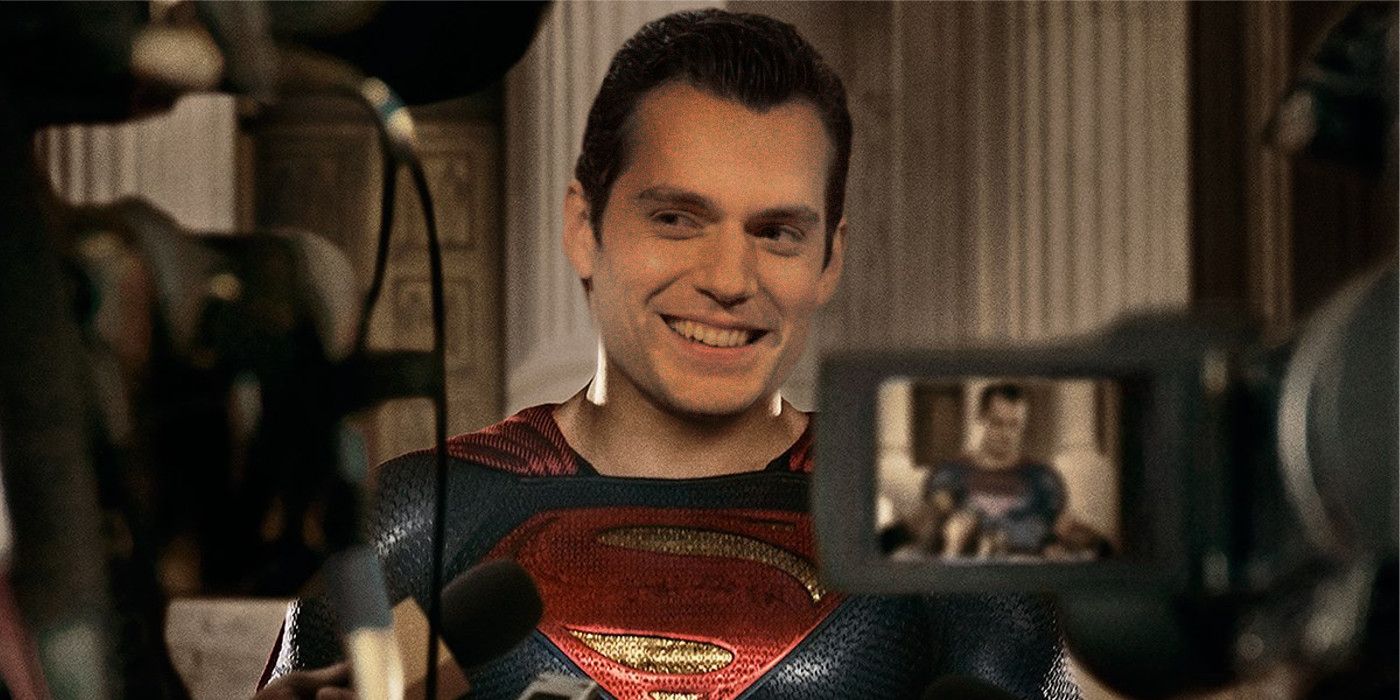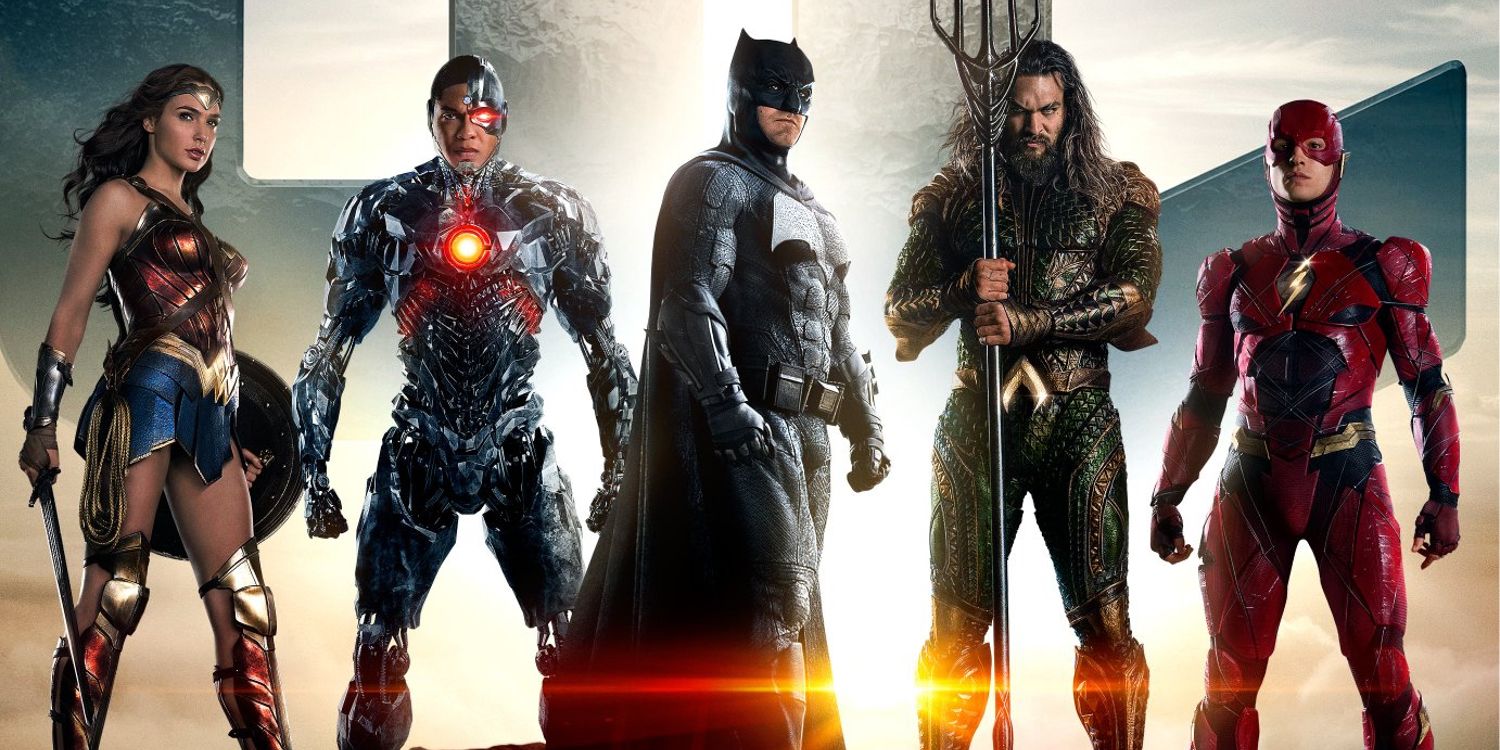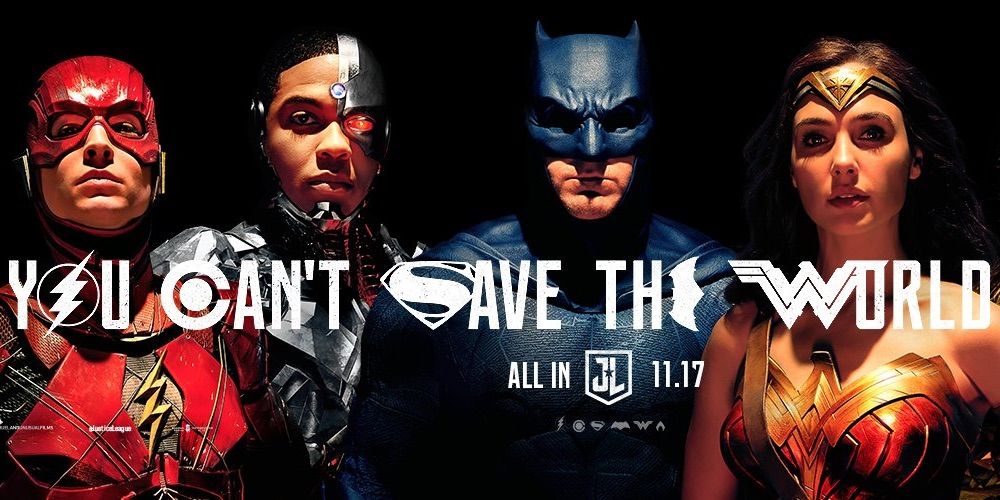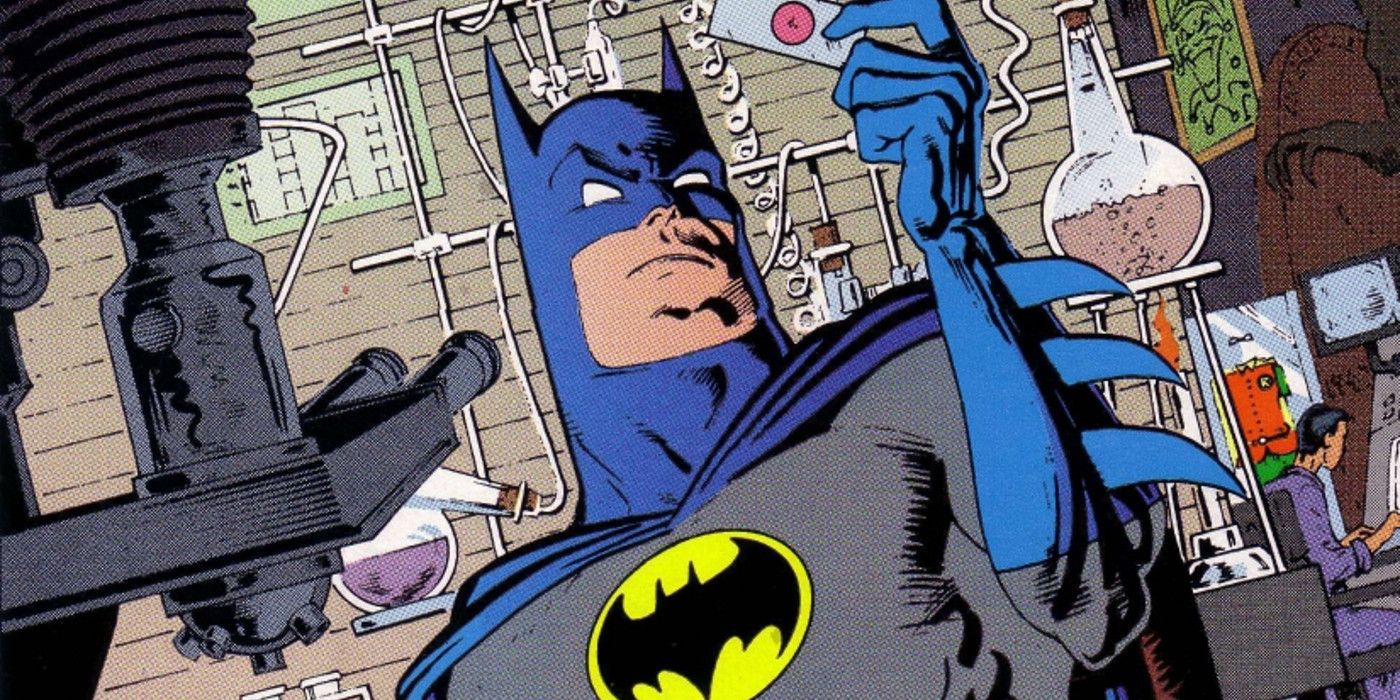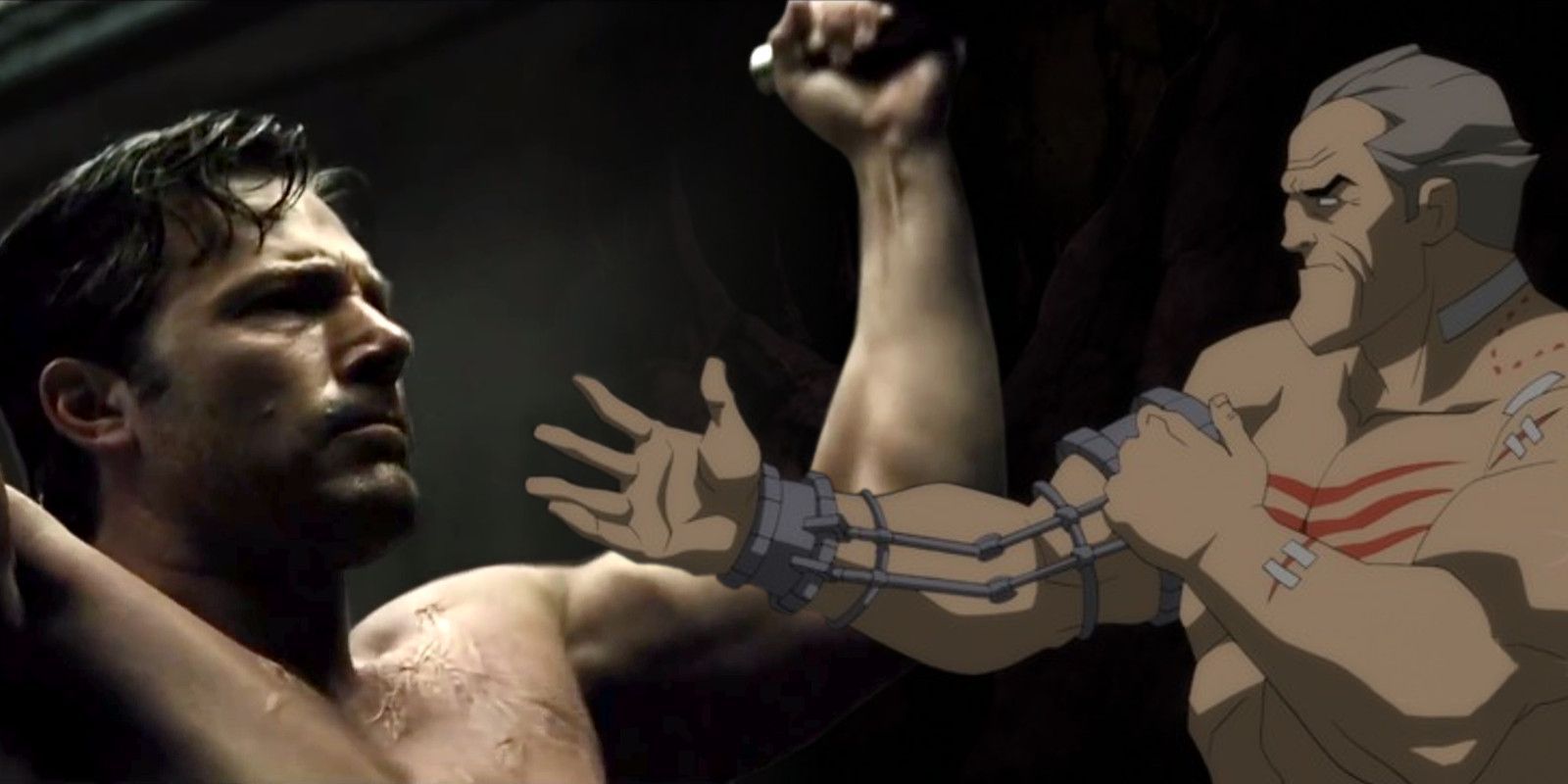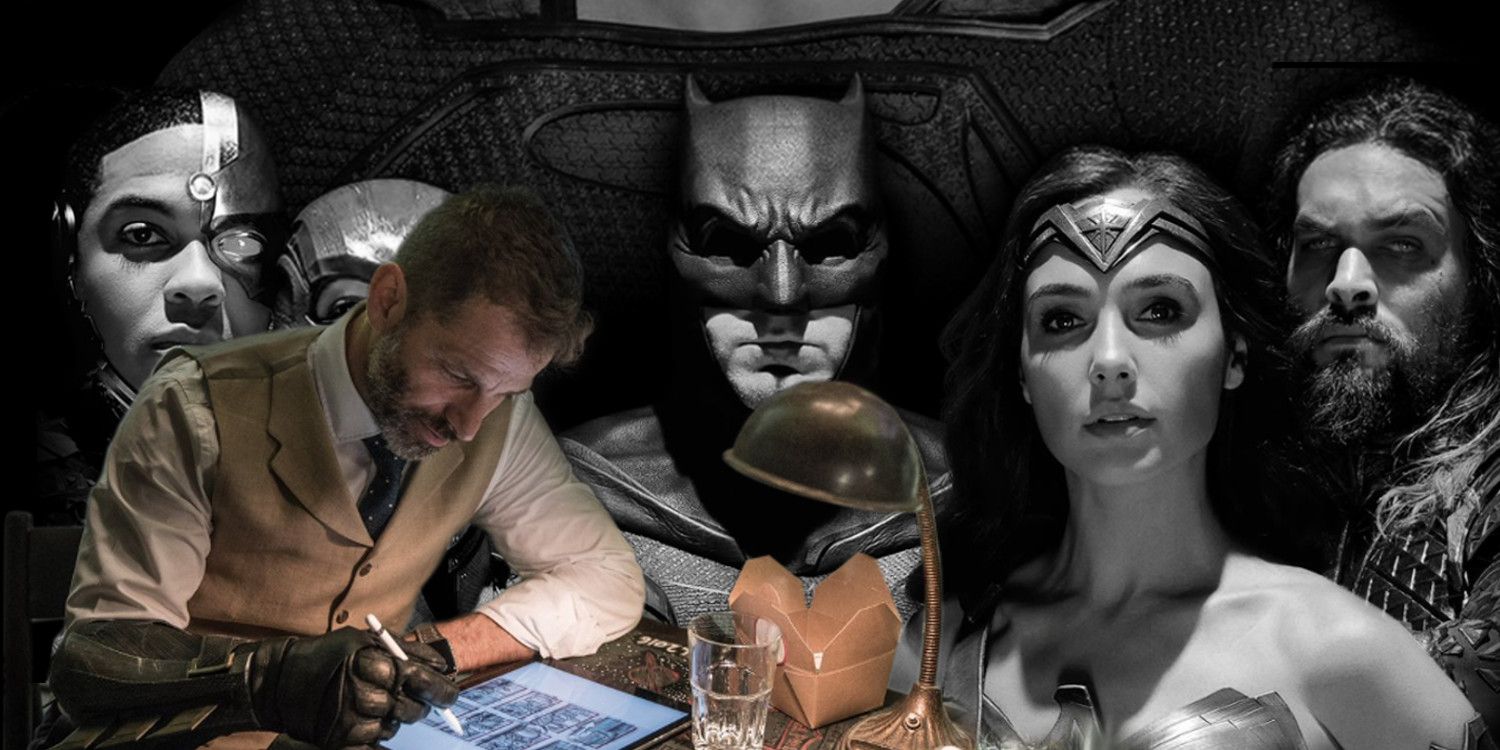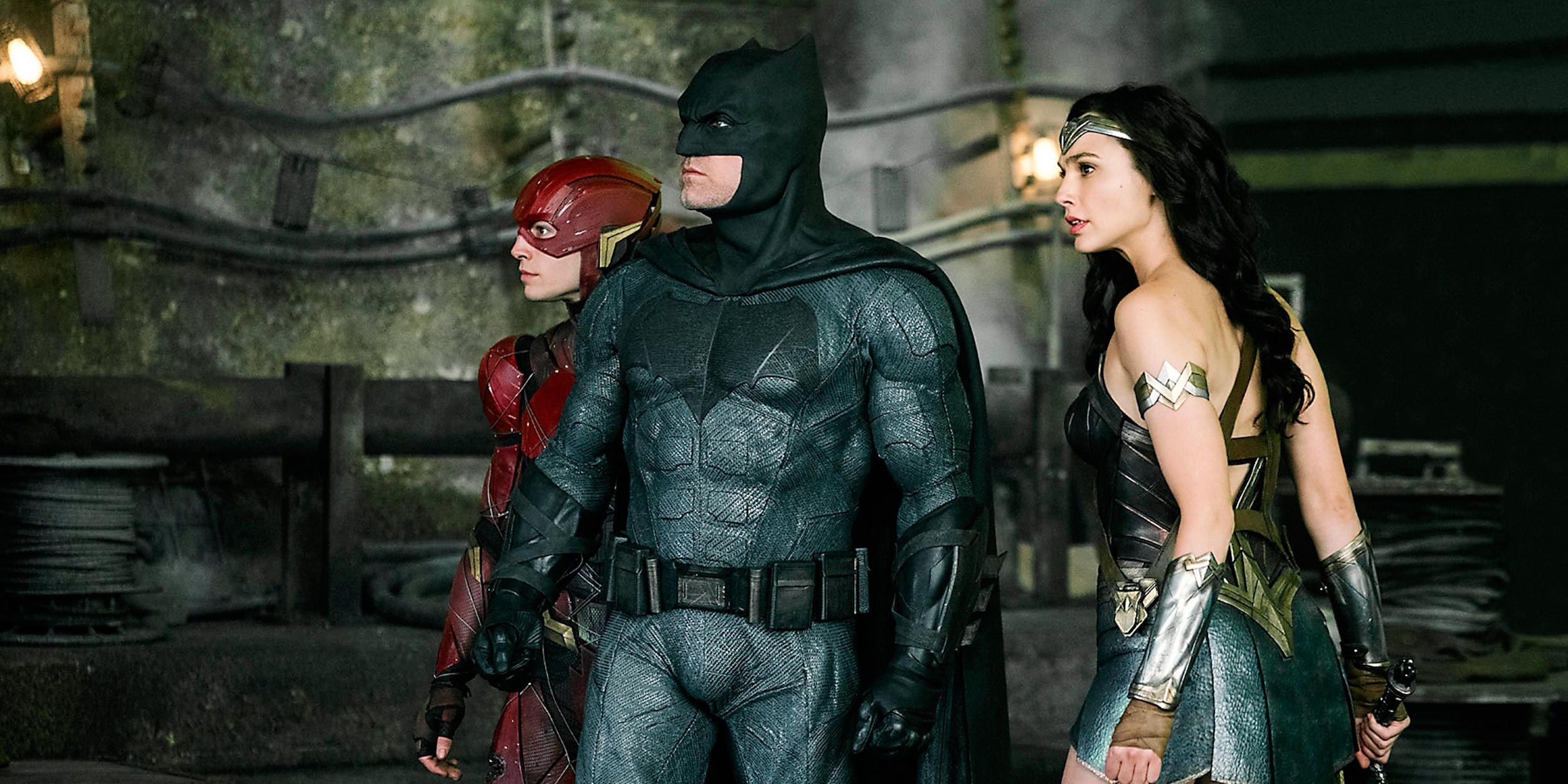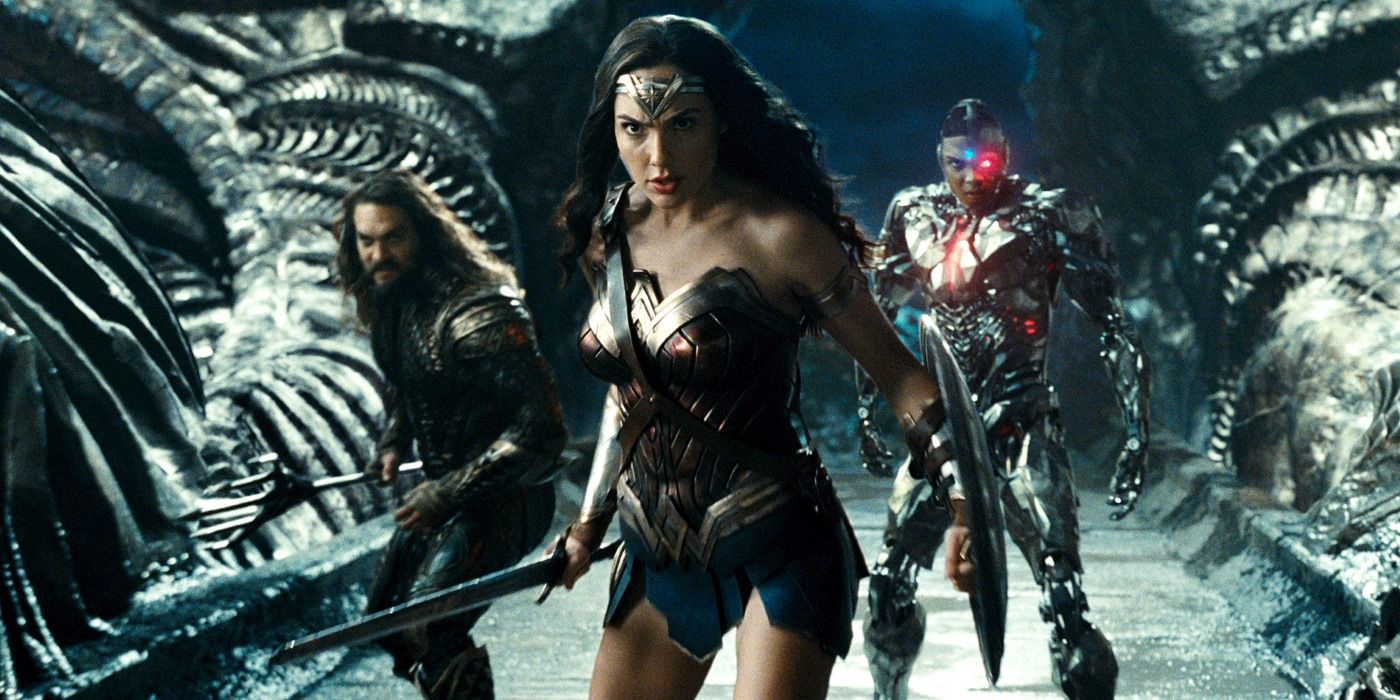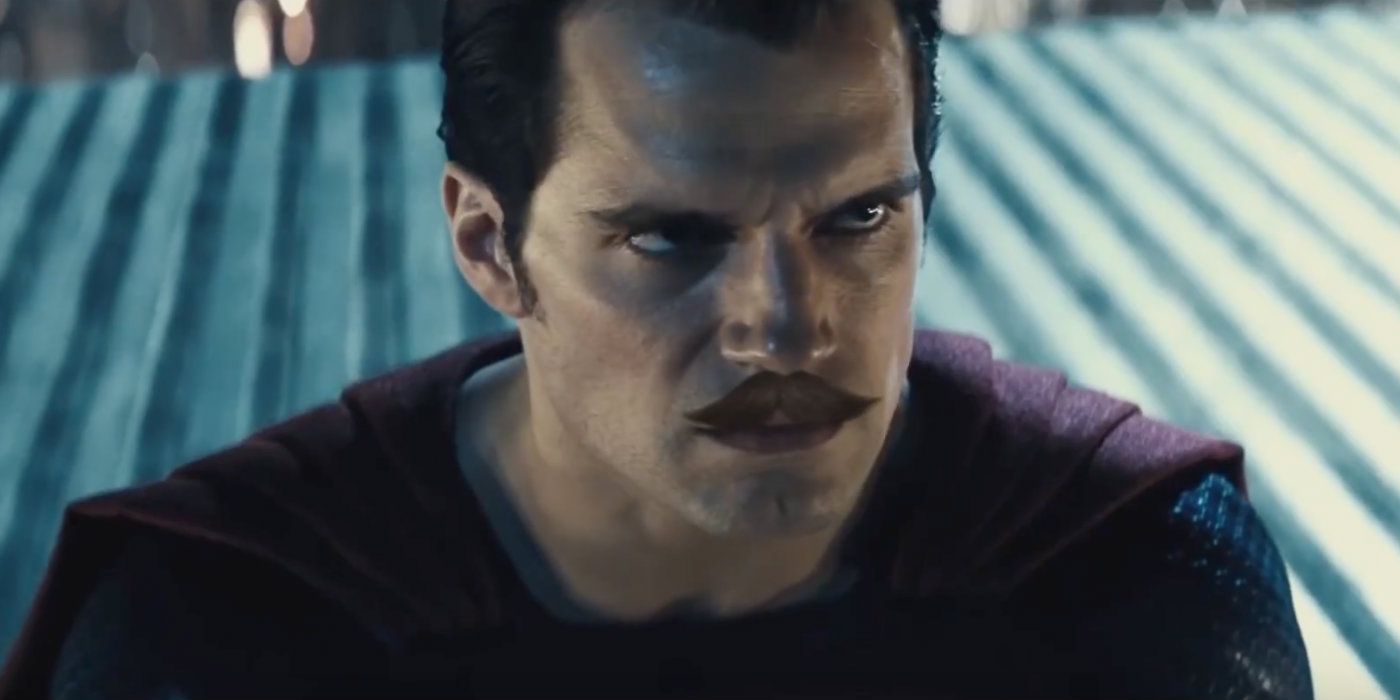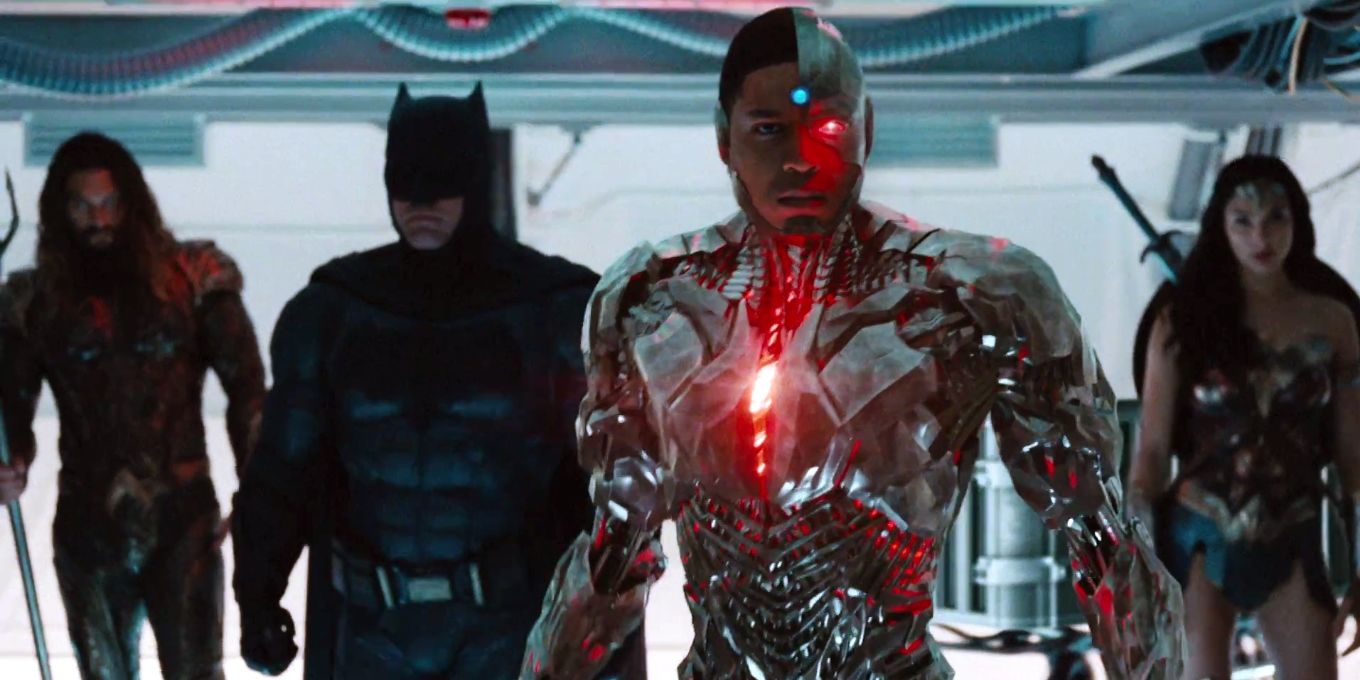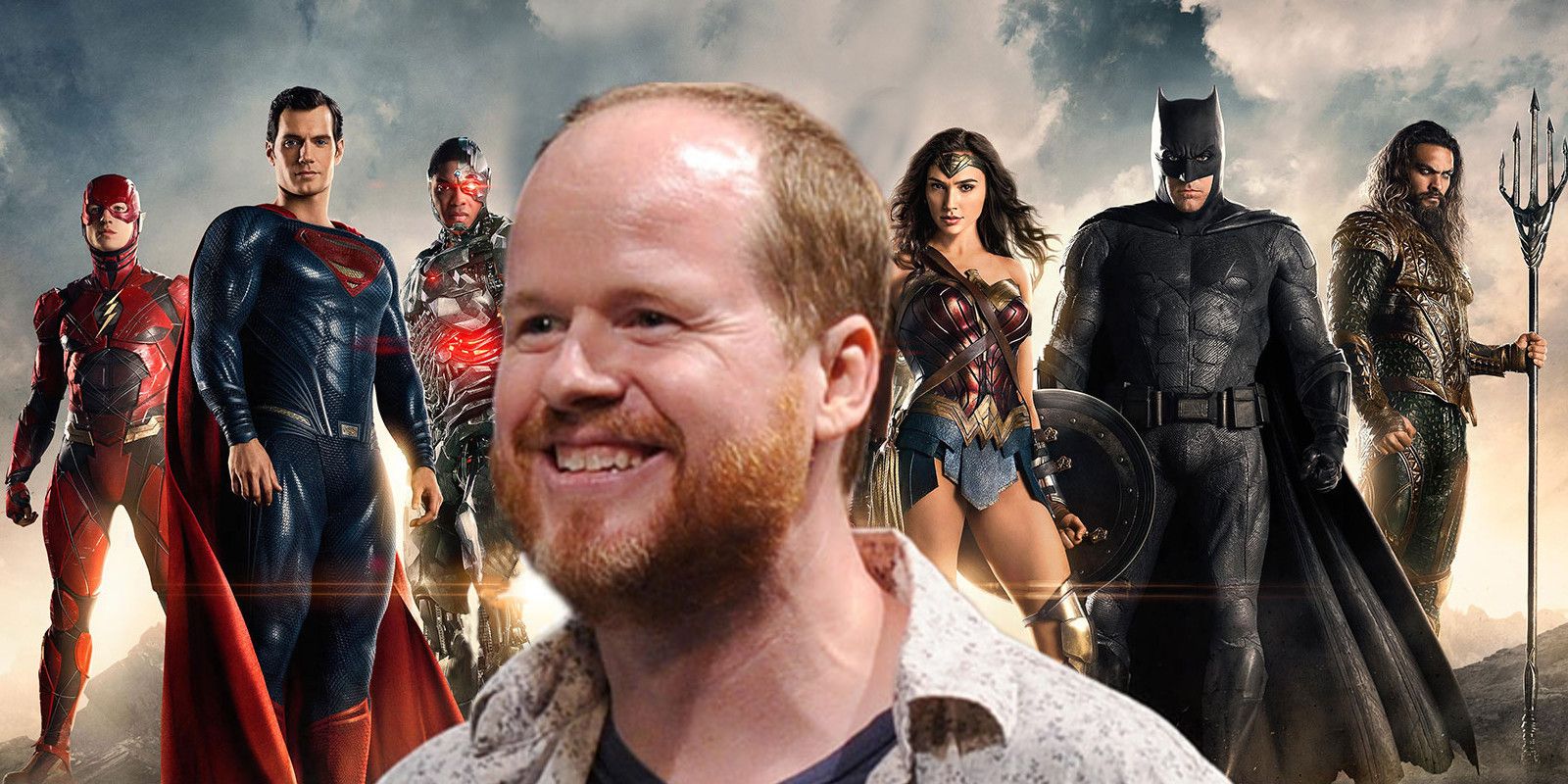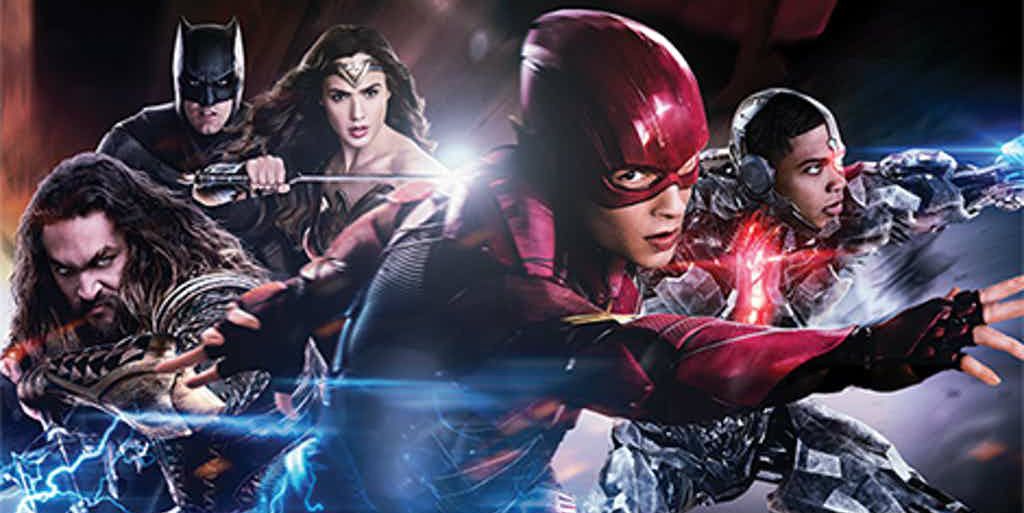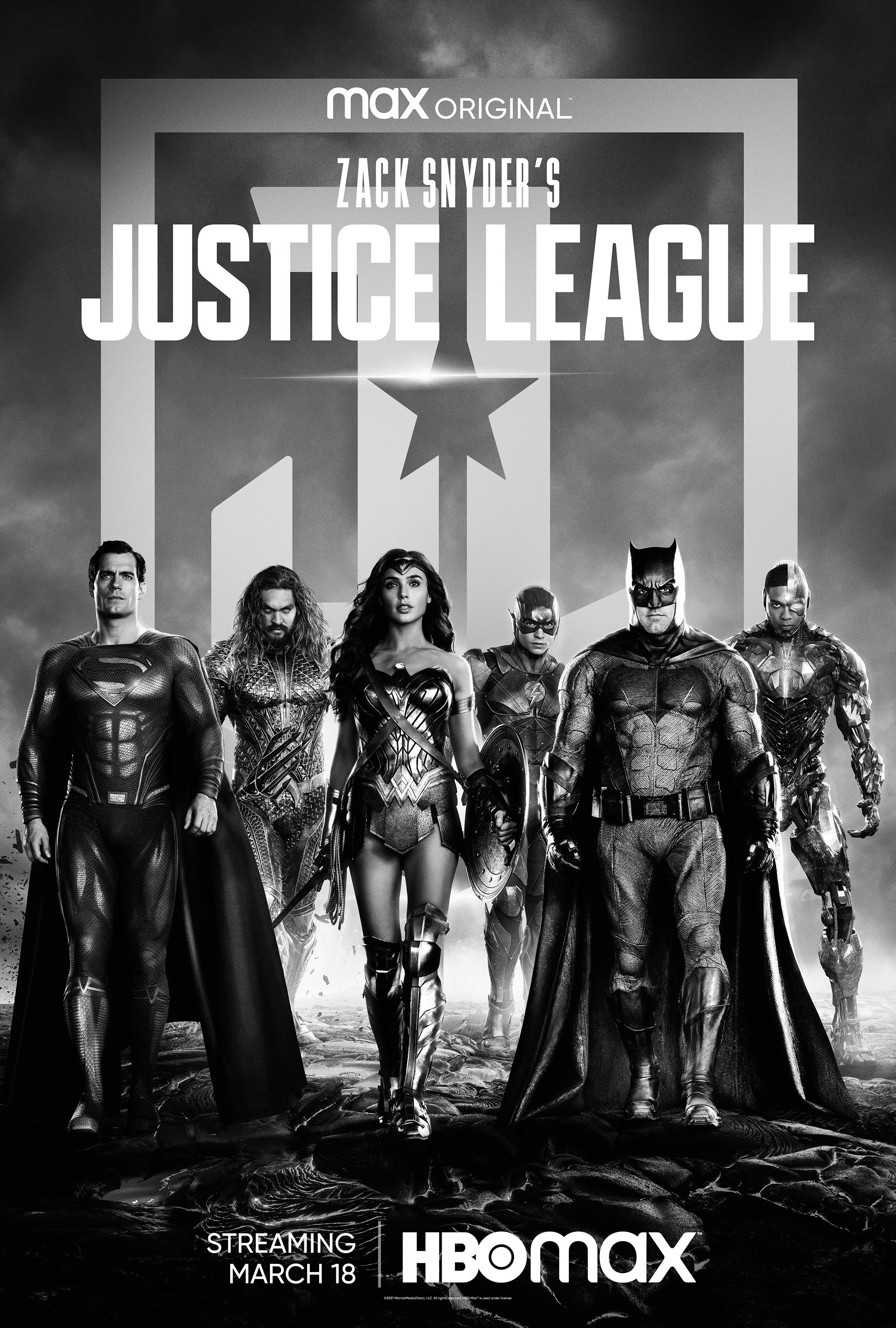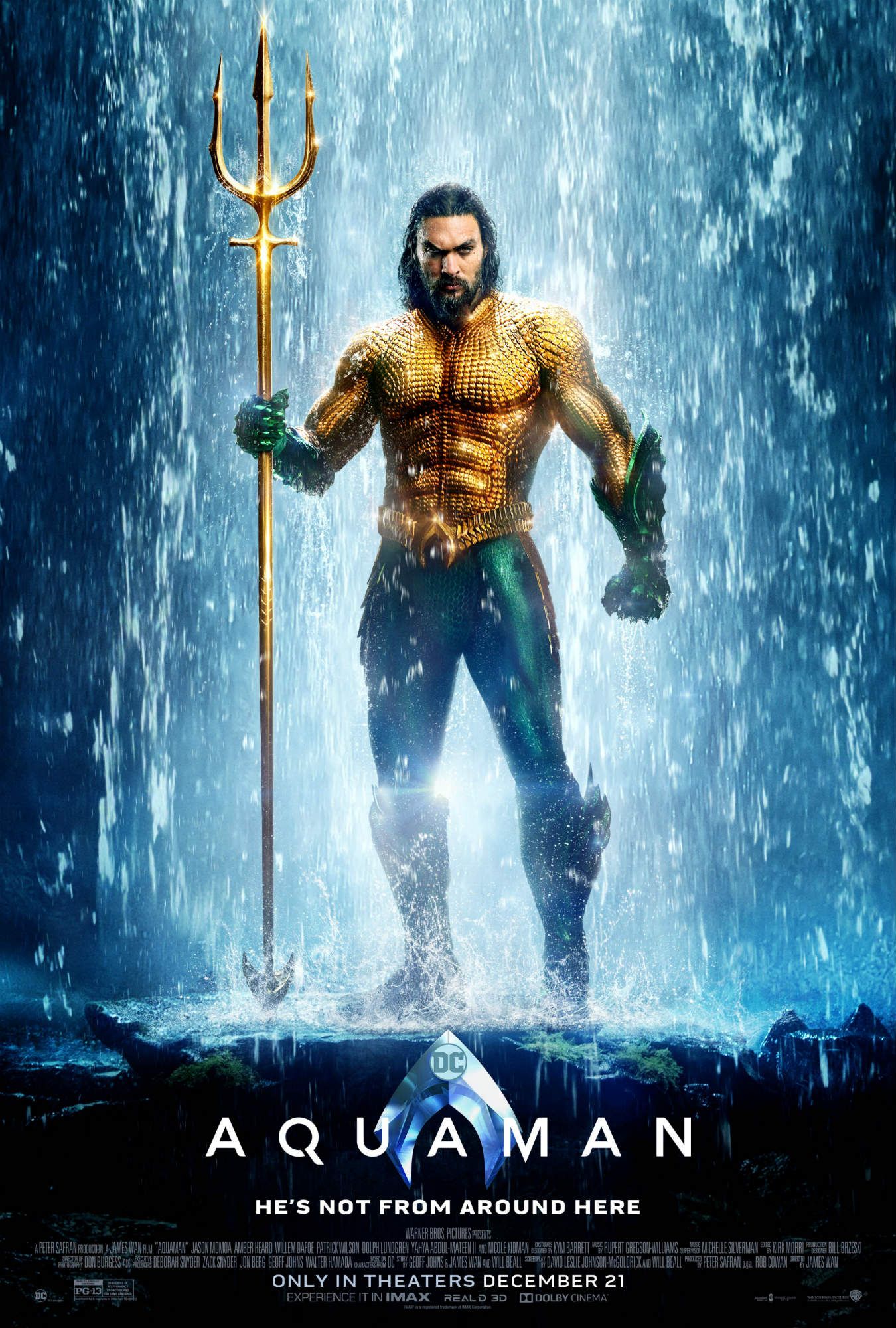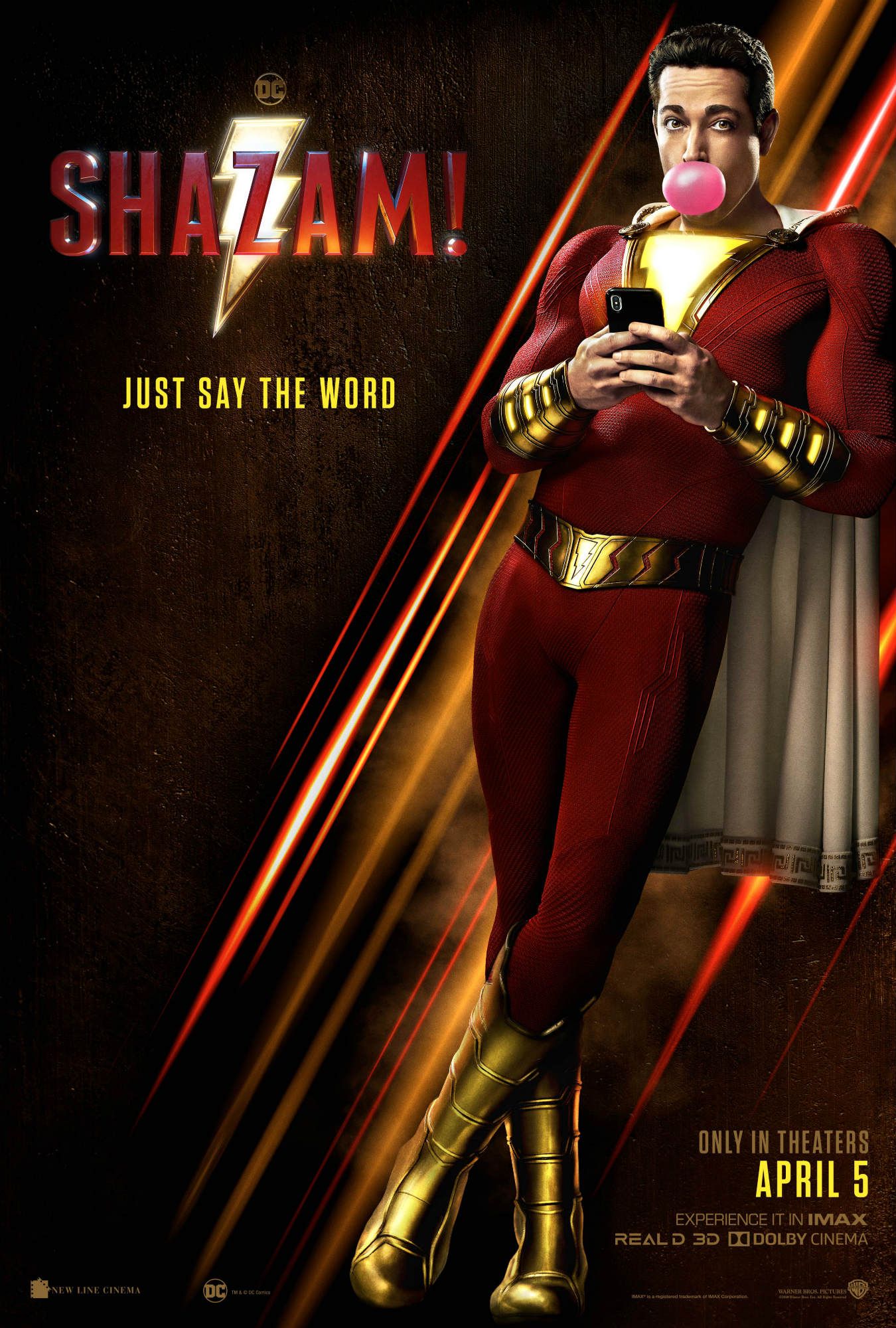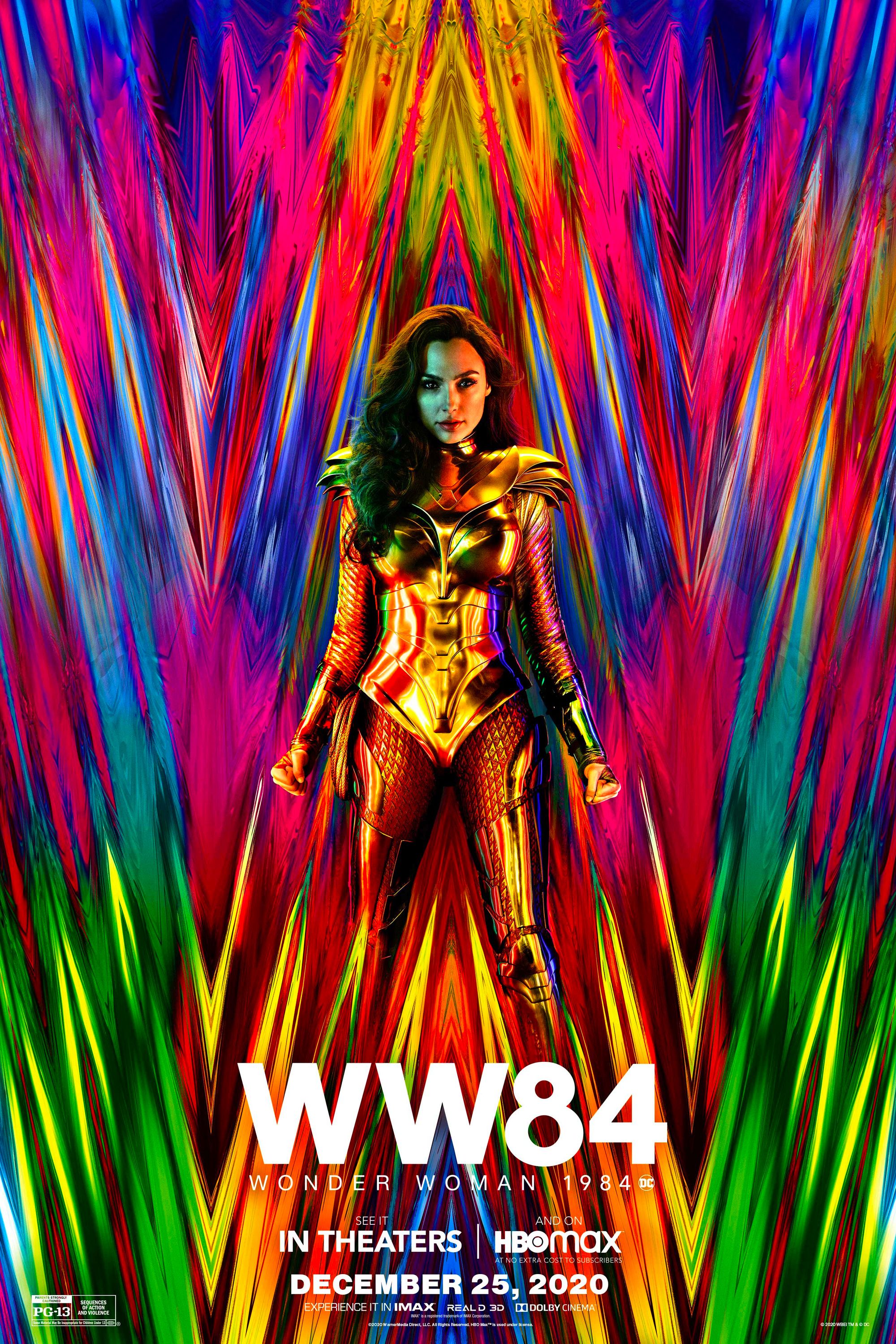Every big budget movie schedules for reshoots after the completion of principal photography. Once footage is compiled in the editing room, it can often become apparent that some shots need to be replaced, or entirely new shots could help flesh out the story. Despite its normalcy, the word "reshoots" always causes alarm amongst fandom due to a few high profile cases of last ditch efforts to fix a bad movie. Sometimes it's a success, like Rogue One or World War Z, but other times it isn't, like with Fantastic Four or Hancock.In the case of the DCEU - where critical backlash matched with strong fan support always causes a little extra drama - Suicide Squad's reshoots and apparent tonal change from early marketing, resulting in another critical thrashing, means the word "reshoots" carries even more baggage than it would for other franchises; so, it wasn't surprising that the announcement that Justice League would be going through additional photography, the rumor mill started turning. Zack Snyder's departure due to a family tragedy and Joss Whedon coming on to complete said reshoots only added gasoline to that fire. Many fans and members of the media began speculating and connecting some dots that may or may not exist, determining that Warner Bros was taking advantage of an opportunity to change direction - possibly to a drastic extent - without Snyder.Over time, numerous rumors have surfaced saying a variety of different things about the true direction the movie is taking after Snyder's exit. Over time, these rumors have started to blend together and combine with varying levels of speculation to join the zeitgeist as a generally accepted indicator of Justice League's behind-the-scenes status, with many people losing sight of how each individual rumor started or specifically what it said, only knowing that things sound chaotic, reactionary, and doomed.While, at a glance, this narrative may seem to fit the bill, it lacks the nuance necessary to understanding the true status of Justice League's storied production, distilling layers of rumors down to a single thumbs up or thumbs down, with the credibility of each individual rumor becoming a non-issue due to the sheer volume of claims floating around.The true behind-the-scenes story may not be revealed for a number of years, but based on things we've already learned about the production of Justice League, as well as the stated plans for the universe, we have enough puzzle pieces to get a good idea of what's going on with the reshoots - but first we'll need to review the history of Justice League's production to this point.
Page 1: This Page
A Chronology of Justice League's Production
In October of 2014, Warner Bros. officially announced that Zack Synder would be directing Justice League Part 1 with Justice League Part 2 set for 2019. The "Part 1" and "Part 2" labeling gave many people the impression that it was a single story split between two films with a cliffhanger, although it would later be specified that Justice League was intended to be a standalone story, including some set up for the rest of the DCEU, but not necessarily ending on a cliffhanger. It's not clear if Part 1 and Part 2 were always independent stories or if this is one of the changes that happened after Batman v Superman, but either way, Justice League entered production as a stand alone story without plans for a cliffhanger. As we'll continue to see moving forward, the DCEU regularly has issues with PR, so this kind of confusion isn't unique.
Leading up to the release of Batman v Superman, BvS and JL writer Chris Terrio said Justice League was going to be a much lighter story than BvS, since the latter had the dark task of finding a way to bring the Dark Knight and the Man of Steel to blows, pointing out that the middle film of most trilogies is the darkest one, and the 3rd is the one that sees redemption. This was corroborated by Debora and Zack Snyder, who specified during BvS promotion that new characters, particularly Flash, would be a major source of the tonal change, and once again reiterated on the Justice League set visit where Snyder said Justice League was always going to be more optimistic, although the reception of BvS definitely caused them to lean into that optimism a little more.
As Warner Bros. adjusted their film divisions, giving Geoff Johns and Jon Berg leadership roles over DC films, the two chiefs reiterated that tone was going to evolve as planned, although maybe at a faster pace, with Berg telling the Wall Street Journal: "We accelerated the story to get to the hope and optimism a little faster." However, despite the accelerated tonal change, Geoff Johns was also quick to point out that "it's not like we should change everything to be about hope and optimism," because characters, context, and story can all demand various tones. He goes on to verify that the characterizations in the DCEU are exactly what he wants: "There's nothing to change. That's what these characters are."
As the official heads of DC Films, the words of Johns and Berg were initially accepted as fairly definitive statements, something that was sorely needed in the wake of Zack Snyder bringing in Joss Whedon to replace him for the Justice League reshoots. Whedon had already been involved, writing some new scenes at the request of Snyder, and his part in the project was just to "help Zack finish his vision" by filming those additional scenes. While the combination of Snyder and Whedon may normally be seen as an enticing improvement for both fans and detractors of the two directors, the move understandably cast doubt on the project's future due to the already polarizing nature of the DCEU.
The perception that Whedon would simply be completing a paint-by-number originally conceived by Zack Snyder began to fade when it was announced that Junkie XL would be replaced by Danny Elfman. With a long career, Elfman has a reputation for some more whimsical movies, but he also composed some of the most famous superhero scores outside of John Williams' Superman theme, specifically Spider-Man and Batman. Junkie XL's removal was attributed to a scheduling conflict (he had to start work on Tomb Raider before JL would be ready), but Elfman worked with Whedon on Avengers: Age of Ultron, so the rumors persisted.
Despite all of this, Zack Snyder completed 100% of principal photography, meaning DGA rules prohibit him from being excluded from post production decision making. It's entirely possible that Snyder has declined this right, preferring to shut his movie out completely as his family deals with their recent loss, but Warner Bros. President and Chief Content Officer Toby Emerich says the Snyders are "actively involved in several upcoming DC pictures, including their continued creative input on Justice League," so it is still most definitely Zack Snyders' movie, even though he's not physically holding a camera in London for reshoots.
Evaluating Movie Rumors
Before we get into the rumors themselves, since the DCEU coverage is so rife with them, let's take a moment to look at the typical lifecycle of a movie rumor and how their validity can be properly evaluated.
The rumor mill is always churning in Hollywood, particularly when it comes to reshoots. The problem is, depending on the source of the rumor (and their source, and potentially their source's source), many details can be lost in translation and out of context by the time they're officially reported. Oftentimes, the rumors wind up being spot on, such as the claim that most or Rogue One's third act was being remade - a decision that resulted in a critical and financially successful film, but just as often they are unfounded and turn out to be false, such as the claims that Wonder Woman was a mess.
Rumors almost always start when somebody hears or sees something. The rumor gains life once it's communicated to someone who publishes it, usually trying to add some sort of context, then all bets are off once it hits the internet. Recent events with the Han Solo movie are a great example. Before the sudden firing of Lord and Miller from the untitled Han Solo movie, there were some rumors floating around that Lucasfilm was not pleased with Alden Ehrenreich's performance. After the directors were replaced by Ron Howard, people continue to point to the fact that an acting coach was hired for the Han Solo actor as a continued cause for concern, even though other reports revealed that Lord and Miller were actually directing a movie that was far too comedic, with Ehrenreich's performance more akin to Ace Ventura than Han Solo. While it's definitely possible that there are other issues with his abilities, the full context, including his stellar performance in other projects, suggests that the problem turned out to be a directorial issue, not a performance issue, although that context wasn't available when the rumor first spread. So, the rumor that an acting coach had to be hired may very well be true, but the conclusion, based on limited context, that Ehrenreich isn't a good match for the part, is not a logical assumption to make once all other factors are accounted for.
The problem is, as a reader, it's often very difficult to determine the contextual awareness of the source of a rumor, particularly when the source is anonymous. Obviously reporters trust their anonymous sources, but how can you? In addition to context, how much of what is reported opinion and how much is fact? Recent rumors that Warner Bros. is looking to replace Ben Affleck as Batman in the DCEU are another great example. Again, it could be true (even though Affleck denied it), but looking at the full picture provides a little more context. Shortly after this rumor surfaced, it was announced that the Flash movie would be called Flashpoint, signaling that it will likely draw heavily from the comic event of the same name. In that alternate timeline story, Bruce Wayne is killed instead of his parents, so the role of Batman is adopted by Thomas Wayne. If the DCEU keeps that aspect of the story, then that means there is truth to the fact that Warner Bros. is looking to replace Affleck, but it could only be because they're using Jeffrey Dean Morgan for that particular story. True or false, if that's the situation, then it's easy to understand how that context could be lost between the source and the reporting.
In addition to the lack of contextual clarity, that original report from THR also asserted that the impetus for phasing Ben Affleck out of the role was at least partially due to his age, even though Ben Affleck was primarily chosen for this older version of Batman because of his age - not in spite of it. Looking at the big picture, it's incredibly easy for the game of telephone and reporting to turn a fact: "Batman will be recast for Flashpoint" into an out of context fact mixed with inaccurate conjecture: "Ben Affleck is being replaced as Batman because he's too old," and then the nuance and context is all lost as the story is mass reproduced by dozens of sites as the story slowly fades into the either as "Ben Affleck is too old to continue playing Batman in the DCEU." Regardless of the truth to the original report, this now generally accepted assertion is completely innacurate.
The last aspect of internet movie rumors is the way in which they're recycled over time. The rumors that Wonder Woman was a mess is a great example here. The initial rumor was supposedly written and published online by a disgruntled WB employee. It was immediately reported by dozens of outlets, but it would periodically be revived by someone simply saying something like "yeah, I heard Wonder Woman has major issues," as the story slowly becomes something like "multiple sources have claimed Wonder Woman is a mess," when it's really onle the one rumor still. When this rumor replication happens behind the scenes, it's even more damaging, as a single rumor making the rounds behind the scenes quickly becomes "multiple sources asserting" the rumor.
Not every rumor can be contextualized, and it's almost impossible to know exactly what's causing a rumor to circulate behind the scenes, so it's obviously important to take all rumors with a grain of salt. The track record of the person or outlet can be a major factor in that part.
But what does this mean for Justice League reshoots?
Justice League: What's Changing?
There have been plenty of Justice League rumors regarding behind the scenes changes, and many of them make similar assumptions or build upon older rumors, so it's important to understand each one and the details surrounding it. In chronological order:
The First Rumor: Remaking Justice League Twice?
The very first set of rumors came from Splash Report in May. Their source claimed Justice League had already undergone numerous reshoots at that point and that the movie would essentially have been œremade¦twice by the time it hit theaters in November. A quick glance at the schedules of the actors involved as well as the absurdity of equating the effort of reshoots to remaking Justice League twice should rule the whole thing out. Even the most extreme of reshoots only remake a percentage of the movie. The Wrap was also quick to put the rumors to bed (with much more reliable sourcing):
œThere has been no additional photography to date on Justice League,' we have planned and will shoot additional pickups early summer. Additional photography has always been planned like most pictures in general but certainly for a tentpole of Justice League's' size and scope.
Even so, the "remade twice" narrative would live on (and keen eyes will see it is even frequently cited in more recent rumors), leading Geoff Johns to eventually weigh in on Twitter, mocking the extremity of changes many people were concerned about.
UPDATE 8/26/2017: Report: Justice League Reshoots Are Still Following Snyder's Plan
The Second Rumor: Reshoots Are Changing the Focus to Wonder Woman
After the arrival of Wonder Woman, the first DCEU movie without a polarized reaction, hopes were high that the new era of DC movies had started and Justice League could continue that success, leading to new rumors that reshoots were actually changing the movie to focus more on Wonder Woman to capitalize on her strong reception. Jon Berg weighed in on this one to clarify that Wonder Woman's role in Justice League was always going to be a major focus, and Wonder Woman's success affirmed that decision but didn't directly result in any creative changes - and posters and marketing that frequently show her at the forefront are definitely evidence of that. So, while it's very true that Wonder Woman is a major focus of the movie, this was always the case and not a reactionary decision.
The Third Rumor: Scheduling Conflicts and Mustache Complications
This rumor came courtesy of Variety and claimed the cost of reshoots had inflated to $25-30 million and several months of work, attributing the issues to the complicated schedules of the stars. Since Ezra Miller is working on the Fantastic Beasts sequel, Henry Cavill is working on Mission Impossible 6, and Jason Momoa is in Austrailia working on Aquaman, it's hard to get them all in front of the camera at the same time.
Since the scenes Zack Snyder reportedly wanted Joss Whedon to write were mostly connective tissue (AKA dialogue) including the whole Justice League, it's understandable that the cost of the studio, equipment, and production crew reserved in a holding pattern to shoot a day or two at a time could easily stretch a few weeks of work and a few million dollars into a few months and millions of dollars more - not to mention the complication of Henry Cavill's mustache, which needs to be digitally edited out. While all angles of this report seem to check out, it doesn't really say much about the nature of the reshoots - but it does debunk (yet again) the idea that they are massive and sweeping. If they can't get the whole cast together, they definitely can't reshoot significant chunks of the movie.
The Fourth Rumor: The Reshoots Were to Lighten the Movie, Particularly Cyborg
During an interview with IGN, Silas Stone actor Joe Morton shed some light on his experience working with Joss Whedon during reshoots, saying nothing that he worked on actually changed the tone. He does say the tone of Cyborg's character was altered (in some way) during reshoots, which makes a lot of sense, as Zack Snyder had previously emphasized Cyborg's role as the heart of Justice League - which means Cyborg needs to work for Justice League to work. Ironically, this claim is one that actually reinforces Snyders' original vision for the movie.
Morton goes on to say "I think what I heard was that there was a need from the studio to lighten up the film in a way, that the film felt too dark." It only makes sense that Morton would hear those rumors because we've all heard those rumors. As a minor character in the film, Morton isn't necessarily in a place that would make him privy to such details, but it makes sense that the rumors that are circling outside the production could also circulate inside the production. Cyborg himself also weighed in on the reshoots to say they are œThey're brief if anything. Zack picked a great director to help clean up for us.
The Fifth Rumor: Warner Bros. Hired Joss Whedon to Make Justice League Lighter and Replace the Ending
Once again, tone is at the center of this rumor. According to /Film, Joss Whedon was hired to both lighten the movie and replace Zack Snyder's original cliffhanger ending. Whats interesting about this one isn't that it sounds like a rehash of (very) old news. Going back to the early production of Justice League (as detailed earlier in this piece), Justice League is not a "part 1" film, it wasn't supposed to include a cliffhanger when it entered production, and the movie's tone was already an adjustment from Batman v Superman - twice over. It's not unreasonable to assume the movie is getting a more definitive ending, but if the original intent was to make it more optimistic, and Geoff Johns, Jon Berg, and the Snyders agreed to accelerate that path to optimism, just how light would it be if Joss Whedon made it even lighter? Logistical impossibility of changing the whole movie to that extent (as specified by Variety's report) aside, he came in to replace Snyder for the reshoots, which Snyder still remains creative control, meaning if he was actually intended to override whatever (already lightened) movie Snyder was making, then Warner Bros. would be in a clear violation of the DGA - and Toby Emmerich went out of his way to specify continued involvement from the Snyders. An odd choice for a man supposedly trying to minimize their influence.
Besides, a quick look at the newest trailer, which was released after some reshoots (and supposed tonal adjustment decisions) had already taken place, show a tone very in-line with the previous trailers, without any sign of major adjustments. Comparatively, Suicide Squad's massive post-BvS adjustments became more and more evident through each bit of marketing as it leaned into the pop music and neon aesthetic, eschewing the more gritty tone of the Comic-Con first look footage. If there are any changes of that nature going on with Justice League, Warner Bros. is definitely hiding it in marketing, which begs the question: why would WB think it's necessary to massively change the tone to be more appealing, yet not references that tonal change in marketing, whose entire job is to make the movie more appealing? If a similar tonal conversion were happening, the first place it would be evident would be in the marketing.
The Sixth Rumor: Justice League Was "Unwatchable" Before Reshoots
This one is the newest one to make the rounds, piggy backing on the above statements of Joe Morton, with Batman-on-Film adding that extensive reshoots were ordered due to the film being "unwatchable." That specific term is interesting, considering these reshoots were ordered by Snyder earlier this year after screening an early cut of the film, when another Batman-on-Film source claimed he saw an early cut that was impressive. One simple explanation for this difference in opinion revolves around the word "unwatchable," which is difficult to evaluate without context. In the comments of that same piece, the writer specifies that the Zack Snyder cut was from October 2016, right after the end of principal photography. What that means is that ther were no complete visual effects, sound effects, ADR, music, or typically scheduled reshoots. Anyone familiar with moviemaking may be able to evaluate such an early cut of the film, an easy way to describe it to general audiences would be "unwatchable."
Besides, THR already reported on that screening when Zack Snyder left the project, specifying that Zack wasn't satisfied and brough Joss Whedon in to write additional scenes for the movie, which is what's being shot now. This rumor is also another one that hinges on that "significant changes" phrase, which, again, is a logistical impossibility with the complicated schedules of the actors and time remaining until release. All together, there's really no new news here, only an old rumor slapped on top of a new rumor, which is also based on an old rumor, which doesn't really hold any water anyway, because we're still talking about reshoots that were requested by Zack Snyder in order to complete his own vision for the film.
Looking at "all of these rumors" as a whole, it's easy to see how many people could have a negative outlook toward the potential quality of Justice League, after all, numerous reports are claiming myriad issues with the film and suggesting sweeping massive changes. But taking a step back and looking at how many of these reports are really based on the same initial rumors, the only claims in the bunch that are actually verifiable all point to the same version for the film that Zack Snyder spoke of during last year's Justice League set visit, and the tone and story beats in the trailers have remained the same since Comic-Con last year.
So what is worth worrying about? Well, the fact that the reshoots - whatever their true extent is - are made so complicated by scheduling issues and mustache removal on top of the fact that they're being overseen by a different director can obviously be tricky waters. The fact that Snyder is still involved behind the scenes eases some of those concerns, but as Ben Affleck said, Justice League will be an "interesting product of two directors," meaning whoever is ultimately calling the shots behind the scenes definitely has their hands full. So are changes happening? Of course. Is it all doom and gloom? There are definitely complications the production will need to overcome, but as Rogue One showed us last year, changes to story and director don't inherently produce bad pictures. Affleck went on to say he really loves the stuff they've done with Joss and the DCEU is finally "hitting their stride. They're getting it right. It's starting to feel like it's really working.
As far as the question of why there's so much negative press surrounding this movie, it's hard to determine, but Wonder Woman faced a proportional level of negativity (obviously it was a smaller film) and turned out more than fine. It likely won't stop anytime soon, and there are a few months to go until November, but for any continuing suggestions or rumors, you can thankfully look back to everything we learned during the set visit and compare to the trailers, and determine for yourself what version of this movie is being made.

